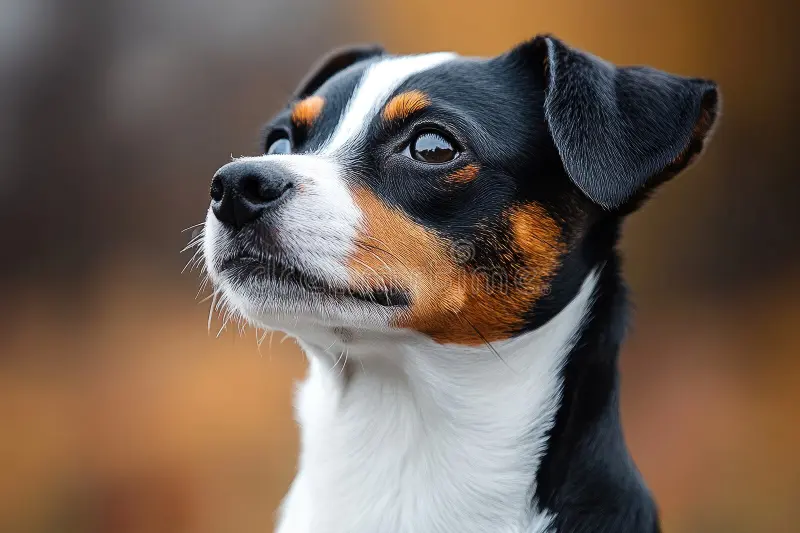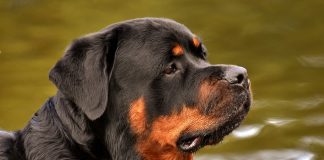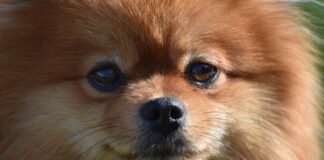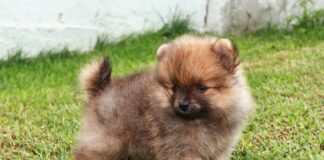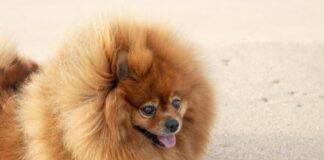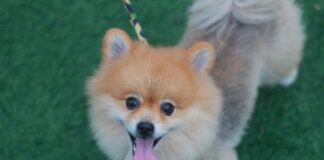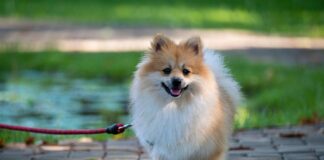Introduction to the Miniature Pinscher as a City Companion
The Rise of the Miniature Pinscher as a City Dog: The Miniature Pinscher, often affectionately referred to as the “Min Pin,” is a breed that has garnered increasing popularity as an urban companion in recent years. Known for their spirited demeanor, intelligence, and charming looks, these small dogs have become a preferred choice for city dwellers seeking companionship in fast-paced environments. Their compact size and energetic nature make them well-suited to smaller living spaces, which are commonplace in urban settings. As cities continue to expand and evolve, the Miniature Pinscher is emerging as a quintessential city dog, adapting seamlessly to contemporary lifestyles.
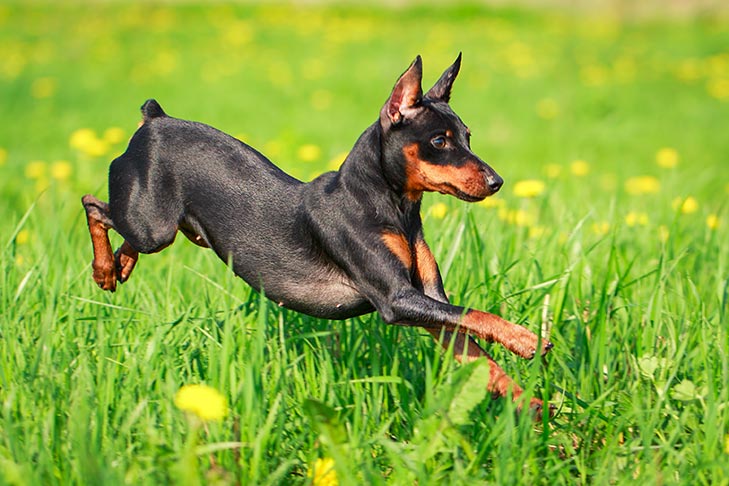
Urban living presents a unique set of challenges and opportunities for dog owners. Space constraints, busy schedules, and social dynamics define the life of city dwellers, necessitating a breed that can thrive amidst such conditions. The Miniature Pinscher, with its lively disposition, has proven to be an ideal companion, offering not just loyalty and affection but also the zest for life that many urbanites seek in their pets. This article delves into the myriad characteristics that make the Miniature Pinscher a delightful addition to city life, shedding light on their adaptability, training needs, and social behaviors.
Beyond the Trend: The Miniature Pinscher’s City Lifestyle
As cities become more dog-friendly, the Miniature Pinscher’s presence is increasingly evident in parks, cafes, and community events. Their small stature allows them to navigate the urban landscape with ease, whether it be through bustling streets or cozy apartment corridors. Miniature Pinschers are often seen accompanying their owners on errands, enjoying strolls in the neighborhood, or even attending outdoor brunches, where they can socialize with other dogs and people alike. This active lifestyle aligns perfectly with the dynamic pace of city living, making them ideal companions for those who enjoy an on-the-go lifestyle.
The breed’s energetic nature means that Miniature Pinschers require regular physical activities, such as daily walks or visits to dog parks. Their high energy levels make them excellent candidates for participating in various activities, including agility training and dog sports, which can be readily found in urban areas. Additionally, their playful character makes them amenable to engaging in various city adventures, such as exploring the waterfront or participating in community dog events. This level of engagement not only benefits the dogs but also fosters a sense of community among pet owners.
Moreover, the Miniature Pinscher’s adaptability shines through in urban environments where noise, crowds, and limited space are the norms. Their ability to adjust to these dynamics, coupled with their inherent curiosity, makes them a great fit for city life. Owners find that their Min Pins are often more than just pets; they become integral members of the family, participating in daily activities and contributing to a lively household atmosphere.
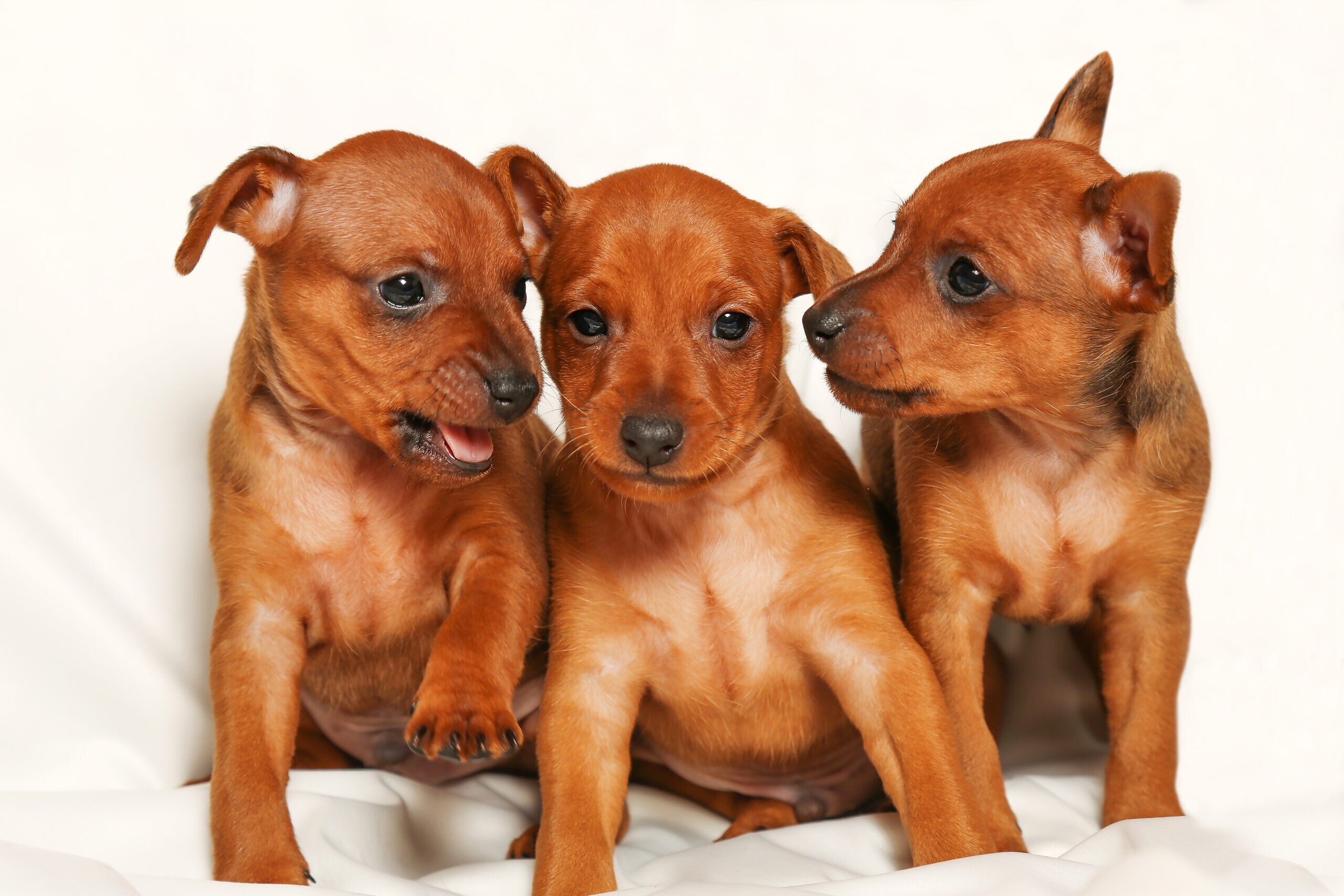
Intelligence & Affection: The Perfect City Companions
Miniature Pinschers are known for their exceptional intelligence, ranking among the more trainable dog breeds. This characteristic is particularly advantageous in urban settings, where clear communication and obedience are essential for maintaining safety and harmony. Their ability to learn commands quickly allows owners to instill good behavior from an early age, crucial for navigating busy city streets or crowded public spaces. Whether it is mastering basic commands or performing tricks, the Miniature Pinscher’s intellectual capabilities shine through, making them a manageable companion for first-time dog owners and seasoned pet enthusiasts alike.
In addition to their intelligence, Miniature Pinschers are celebrated for their affectionate nature. They form strong bonds with their owners, often displaying loyalty and devotion that enhances the owner-pet relationship. This affectionate demeanor is especially beneficial in urban settings, where the hustle and bustle of city life can be overwhelming at times. Miniature Pinschers offer emotional support and companionship, providing a comforting presence amidst the chaos of urban living.
Moreover, their playful spirit adds a layer of joy to their interactions with owners. These dogs thrive on playtime, whether it be chasing a ball in the park or engaging in tug-of-war games at home. This playful nature not only enriches the bond between the Miniature Pinscher and its owner but also encourages an active lifestyle that aligns well with the urban experience. Their enthusiasm for life makes them delightful companions, helping to alleviate stress and enhance the overall quality of life for city residents.
Furthermore, the social nature of Miniature Pinschers allows them to easily integrate into urban communities. They enjoy meeting other dogs and people, often exhibiting a friendly and approachable demeanor. This sociability, combined with their intelligence and affection, positions them as ideal companions for individuals and families alike, reinforcing their status as the perfect city dog.
Historical Background of the Miniature Pinscher Breed
To fully appreciate the rise of the Miniature Pinscher as a city companion, one must first understand its historical roots. The breed originated in Germany in the early 20th century, developed primarily as a ratter to control vermin populations on farms and in homes. Their smaller size is a result of selective breeding with the aim of creating an agile and energetic dog capable of navigating tight spaces to catch small prey. Over the years, the Miniature Pinscher has retained its lively spirit and keen hunting instinct, which continue to be defining characteristics of the breed.
The breed’s popularity grew significantly during the 1920s and 1930s, particularly in Europe and the United States, where it was recognized for its distinctive appearance and spirited personality. Despite the common misconception that Miniature Pinschers are a smaller version of Doberman Pinschers, they actually share no direct ancestry with the latter. Instead, they boast a lineage that includes the German Pinscher, the Dachshund, and the Italian Greyhound, contributing to their unique characteristics.
As urban environments developed throughout the 20th century, the Miniature Pinscher found a place within the homes of city dwellers who appreciated their adaptability and charm. This transition from farm dogs to urban companions illustrates the breed’s resilience and capability to thrive in diverse environments. As cities became more accommodating to pets, the demand for small, sociable dogs like the Miniature Pinscher surged, further solidifying their role as city dogs.
Today, the Miniature Pinscher remains a popular choice for urban pet owners, appreciated not only for its portability but also for its vibrant personality. Their historical background as working dogs complements their modern-day role as loving companions, illustrating the seamless evolution of the breed throughout the years. Understanding this history enriches the appreciation of the Miniature Pinscher as a city companion, as it highlights their enduring qualities that resonate with urban lifestyles.

Characteristics That Make Miniature Pinschers Ideal for Cities
Several key characteristics make the Miniature Pinscher particularly well-suited for city living. First and foremost, their small size is one of the most significant advantages. Weighing between 8 to 12 pounds, Miniature Pinschers can easily adapt to apartments and smaller living spaces without requiring an extensive amount of room to roam. This is especially beneficial in cities where real estate can be limited and expensive.
In addition to their size, Miniature Pinschers boast a high energy level, which translates into a playful and active personality. This energetic nature means they require regular exercise, which can easily be accommodated with daily walks, trips to dog parks, or engaging play sessions. Their enthusiasm for physical activity encourages owners to maintain a healthy and active lifestyle, creating a positive dynamic that benefits both pet and owner.
The breed is also known for its alertness, making Miniature Pinschers excellent watchdogs. Their keen instincts and protective nature mean they will bark to alert owners of any unusual activity, providing an added layer of security in urban environments. This quality is particularly valued by city dwellers who may be concerned about safety in bustling neighborhoods.
Moreover, Miniature Pinschers are highly social dogs that thrive on interaction with both humans and other dogs. Their friendly demeanor allows them to engage well with other pets and people, fostering a sense of community among urban dog owners. This sociability not only enhances their quality of life but also encourages connections within the city, promoting a harmonious atmosphere for both pets and their owners.
Lastly, the breed’s intelligence makes them relatively easy to train and manage in urban settings. Their ability to learn commands quickly and adapt to various situations is a significant advantage for busy city dwellers. With proper training, Miniature Pinschers can navigate the complexities of city life, making them an ideal companion for individuals who desire an obedient and well-adjusted pet.
The Miniature Pinscher’s Adaptability to Urban Environments
The Rise of the Miniature Pinscher as a City Dog: Adaptability is a hallmark trait of the Miniature Pinscher, making them exceptionally well-suited for urban environments. This breed exhibits a remarkable ability to acclimate to various social settings and lifestyle changes, which is essential in the fast-paced and ever-evolving nature of city living. Miniature Pinschers thrive on routine and structure, which can be easily established within the confines of urban life.
Their adaptability extends to their ability to handle different types of housing, from high-rise apartments to shared living spaces. Miniature Pinschers do not require large backyards to exercise; instead, they can enjoy walks in city parks or playtime in designated dog areas. This flexibility allows owners to maintain their lifestyle while providing their pets with the exercise and socialization they need.
Additionally, Miniature Pinschers are known to quickly adjust to new environments, whether it be a change in living situations or traveling with their owners. Their curious nature prompts them to explore new surroundings confidently, making them excellent travel companions for city dwellers who enjoy weekend getaways or vacations. This adaptability makes it easy for Miniature Pinscher owners to incorporate their pets into their urban lifestyle.
The breed’s resilience also allows them to cope with the various sensory stimuli that characterize city life. From traffic sounds to bustling crowds, Miniature Pinschers often exhibit a calm demeanor in the face of urban challenges. This quality is essential for city living, where exposure to new experiences is frequent. Their balanced temperament enables them to thrive in diverse situations, ensuring they remain composed and well-adjusted amidst the hustle and bustle.
Moreover, Miniature Pinschers can be easily integrated into busy households, further demonstrating their adaptability. Families with children, other pets, or varied schedules can find that Miniature Pinschers easily adjust to the dynamics of their homes, making them a harmonious addition to the family unit. Their easy-going nature allows them to coexist peacefully with other animals, contributing to a friendly household atmosphere.
In summary, the adaptability of the Miniature Pinscher is a key factor that enables them to flourish as city dogs. Their ability to adjust to diverse living situations, cope with sensory stimuli, and maintain a friendly demeanor with other pets and people makes them an ideal choice for urban dwellers seeking a loyal and affectionate companion.
Health Benefits of Owning a Miniature Pinscher in Urban Areas
Owning a Miniature Pinscher in urban environments offers a variety of health benefits for both the dog and its owner. The active nature of this breed encourages owners to engage in regular physical activity, which is essential for maintaining a healthy lifestyle amidst the sedentary tendencies often associated with city living. Daily walks, playtime in dog parks, and other forms of exercise foster cardiovascular health and weight management for both the pet and the owner.
Furthermore, the companionship provided by Miniature Pinschers can significantly enhance mental well-being. Studies have shown that pet ownership is linked to reduced stress levels, lower rates of depression, and increased overall happiness. The affectionate nature of the Miniature Pinscher promotes emotional support, allowing owners to experience a sense of fulfillment and connection in their busy urban lives.
The social aspect of owning a Miniature Pinscher also contributes to improved mental health outcomes. Taking the dog out for walks or visits to dog parks fosters interaction with other pet owners, creating opportunities for socialization and community building. This social engagement can combat feelings of loneliness and isolation that urban living may sometimes induce.
In addition, the presence of a Miniature Pinscher in a household can promote a structured routine, which is beneficial for maintaining a balanced lifestyle. Establishing a daily schedule for walks, feeding, and playtime encourages owners to prioritize physical activity and create healthy habits. This structure can lead to a more organized and fulfilling urban lifestyle.
Moreover, the energetic personality of Miniature Pinschers means they often require mental stimulation, which can be achieved through training and interactive play. Engaging the dog in puzzle toys, obedience training, or agility courses not only provides physical activity but also enhances cognitive functioning. This intellectually stimulating environment contributes positively to the overall health of both the dog and owner.
Lastly, Miniature Pinschers are relatively low-maintenance in terms of grooming and care, which can be particularly advantageous for busy city dwellers. Their coat requires minimal grooming, allowing owners to focus on spending quality time with their pets rather than extensive grooming routines. This ease of care promotes a positive pet ownership experience, further contributing to the overall well-being of both the dog and its owner.
In conclusion, the health benefits of owning a Miniature Pinscher in urban areas are multifaceted, enhancing physical health, mental well-being, social connections, and overall quality of life for both pets and their owners. This mutual enrichment reinforces the breed’s status as a perfect companion for city living.
Training Techniques for Miniature Pinschers in City Settings
Training is essential for any dog, but it takes on a particular significance for Miniature Pinschers in urban environments. Given their intelligence and active nature, effective training techniques can ensure these spirited dogs are well-behaved companions in busy city settings. Consistency is a fundamental aspect of training, as Miniature Pinschers respond best to clear and structured commands. Establishing a routine for training sessions helps reinforce desired behaviors and allows the dog to learn commands quickly.
Positive reinforcement techniques are particularly effective for this breed. Rewarding good behavior with treats, praise, or playtime helps create a positive learning environment, encouraging the Miniature Pinscher to repeat the desired actions. This method not only enhances the dog’s understanding but also strengthens the bond between the pet and owner, making training a rewarding experience for both parties.
Socialization is another critical aspect of training for Miniature Pinschers. Exposing them to various environments, people, and other animals at an early age helps them develop confidence and adaptability in urban settings. This exposure allows Miniature Pinschers to learn how to navigate crowded areas, busy streets, and social gatherings without becoming overly anxious or reactive. Socialization classes or scheduled playdates with other dogs can aid in achieving this goal.
Leash training is crucial for Miniature Pinschers, especially in city environments where traffic and crowds can pose safety risks. Teaching the dog to walk politely on a leash not only enhances the owner’s control during outings but also ensures a safer experience for both the dog and its owner. Utilizing a harness can provide additional control, reducing the likelihood of pulling or escaping.
Obedience training is equally important for fostering good behavior in public spaces. Commands such as “sit,” “stay,” “come,” and “leave it” can significantly improve a Miniature Pinscher’s reliability during outings. Training sessions can be incorporated into daily walks, allowing owners to reinforce commands in real-life situations. This practical approach promotes a well-mannered dog who is easier to manage in urban settings.
Additionally, mental stimulation is vital for Miniature Pinschers, as their intelligence requires engagement to prevent boredom. Incorporating puzzle toys, interactive games, and obedience challenges into training routines keeps the dog mentally sharp and occupied. This mental stimulation can be especially beneficial in urban environments where physical exercise may be limited.
In summary, effective training techniques for Miniature Pinschers in city settings involve consistency, positive reinforcement, socialization, leash training, and mental engagement. By implementing these strategies, owners can cultivate well-behaved companions, ensuring a harmonious relationship that enhances both the dog’s and owner’s experience of city living.
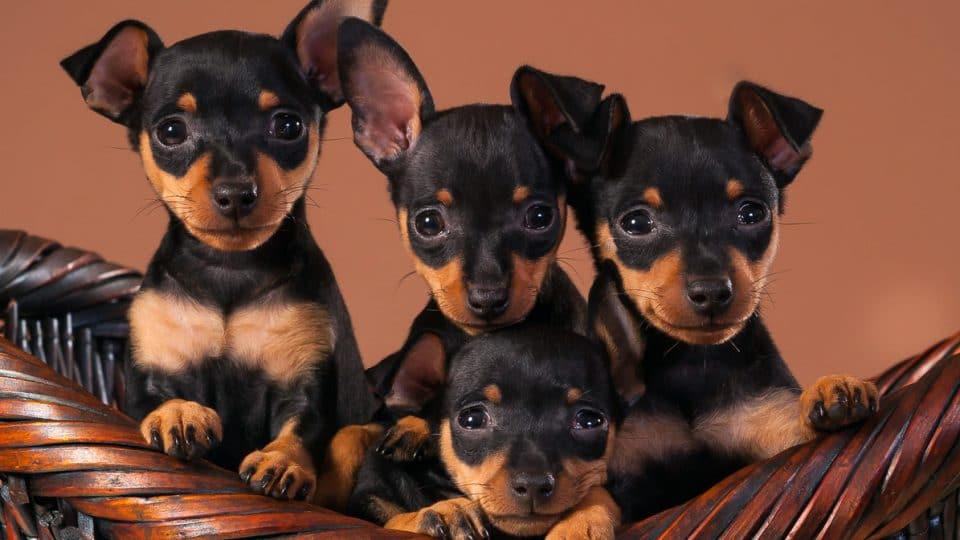
Socialization Needs of the Miniature Pinscher in Urban Life
Socialization is a crucial aspect of raising a Miniature Pinscher in urban environments. Given the breed’s active and curious nature, early socialization experiences can significantly influence their temperament and behavior. Exposure to various stimuli, environments, and other animals is essential for developing a well-adjusted and confident dog capable of navigating the complexities of city life.
One of the primary socialization needs of Miniature Pinschers is regular interaction with other dogs. Dog parks, training classes, and organized playdates provide excellent opportunities for these dogs to engage with their peers. These interactions teach them essential social skills, including proper play etiquette, body language understanding, and conflict resolution. Socialization with other dogs helps minimize the likelihood of behavioral issues such as fearfulness or aggression in unfamiliar situations.
Equally important is the exposure to different environments and urban settings. Miniature Pinschers can benefit from walks through bustling streets, visits to pet-friendly cafes, and attendance at community events. These experiences allow them to encounter a variety of sights, sounds, and smells, helping them adapt to the urban landscape. Gradually introducing them to new environments broadens their comfort zone, enabling them to handle urban life with ease.
In addition to interactions with other dogs, socializing Miniature Pinschers with people is paramount. Encouraging friendly interactions with various individuals—children, adults, and seniors—ensures that the dog remains well-mannered and comfortable in diverse social settings. Positive experiences with people help foster a trusting and confident disposition, reducing the risk of fear-based reactions.
The timing of socialization is also significant. Early exposure during the critical developmental window, which occurs between 3 to 14 weeks of age, is essential for shaping a well-rounded Miniature Pinscher. However, socialization should continue throughout the dog’s life. Regular outings and experiences ensure that the dog remains adaptable and sociable as it matures.
Moreover, training classes focused on socialization can provide structured environments for Miniature Pinschers to engage with other dogs and people while learning essential commands. These classes promote positive interactions and teach the owners how to facilitate safe social experiences for their pets, creating a foundation for lifelong social skills.
In summary, socialization is a vital component of raising a Miniature Pinscher in urban environments. Providing regular opportunities for interaction with other dogs, exposure to diverse settings, and positive encounters with people are essential for fostering a well-adjusted and confident companion. By prioritizing socialization, owners can enhance their Miniature Pinscher’s adaptability and enjoyment of city living.
The Role of Miniature Pinschers in City Lifestyle Trends
As urban living continues to evolve, Miniature Pinschers are playing a significant role in shaping contemporary city lifestyle trends. Their compact size, energetic nature, and social disposition align well with the preferences of modern city dwellers. As more individuals and families adopt a city-centric lifestyle, the presence of Miniature Pinschers is becoming increasingly prominent within urban communities.
One notable trend is the rise of pet-friendly amenities and services in cities. Miniature Pinschers are often at the forefront of this movement, as their small stature makes them ideal companions for urban settings where space is limited. Many city residents now seek out apartments, cafes, and parks that accommodate dogs, reflecting the growing recognition of pets as integral members of the family. This shift promotes the development of pet-friendly policies and facilities that cater to the needs of dog owners.
Additionally, the popularity of outdoor activities and fitness trends has influenced the way Miniature Pinschers are integrated into urban lifestyles. Their energetic nature encourages owners to engage in regular physical activities, such as daily walks, runs, or visits to dog parks. This emphasis on active living aligns with the broader trend of wellness and self-care that is prevalent in urban communities, promoting a healthier lifestyle for both pets and their owners.
Moreover, the Miniature Pinscher’s social nature contributes to the growing trend of community engagement among pet owners. Organized dog events, training classes, and social gatherings provide opportunities for dog lovers to connect and build relationships. Miniature Pinschers often serve as conversation starters, fostering connections among neighbors and creating a sense of camaraderie within the urban pet community.
Another trend is the increasing relevance of technology in pet care. Miniature Pinscher owners are often early adopters of pet-related technology, such as smartphone apps for tracking walks, scheduling veterinary appointments, and connecting with other pet owners. The integration of technology into pet care reflects the modern lifestyle of city dwellers who seek convenience and efficiency in managing their busy lives while ensuring the well-being of their pets.
Additionally, the Miniature Pinscher’s adaptability allows them to participate in various urban lifestyle trends, such as attending outdoor festivals, visiting pet-friendly restaurants, or joining community yoga sessions. Their sociable and friendly demeanor makes them enjoyable companions for these activities, further enhancing the urban experience for both pets and their owners.
In conclusion, Miniature Pinschers play a vital role in shaping city lifestyle trends. Their small size, energetic nature, and social disposition align well with the preferences of urban dwellers, contributing to the rise of pet-friendly amenities, active living, community engagement, and technological integration in pet care. As cities continue to evolve, Miniature Pinschers will undoubtedly remain an integral part of urban life.
Challenges of Raising Miniature Pinschers in Cities
While Miniature Pinschers thrive in urban environments, raising them in cities is not without its challenges. City living presents unique obstacles that owners must navigate to ensure their pets remain healthy, happy, and well-adjusted. Understanding these challenges is crucial for prospective Miniature Pinscher owners who wish to provide the best possible care for their dogs.
One of the primary challenges is the potential for overstimulation in busy urban settings. Miniature Pinschers are inquisitive by nature, and their high energy levels can lead to excitement or anxiety in crowded environments. Exposure to loud noises, busy streets, and unfamiliar people or dogs can overwhelm some individuals, leading to behavioral issues such as fearfulness or aggression. Owners must be vigilant in monitoring their dogs’ reactions and gradually acclimating them to various stimuli.
Additionally, access to green spaces can be limited in densely populated areas. Miniature Pinschers require regular exercise and outdoor time, and finding suitable locations for play and socialization may be challenging. Owners may need to be proactive in seeking out dog parks or open areas where their pets can safely enjoy outdoor activities, as well as ensure that they provide adequate exercise within the confines of their living situations.
Another challenge is the management of social interactions. While Miniature Pinschers are generally sociable, not all dogs exhibit friendly behavior. Owners must be mindful of potential confrontations when out in public, as negative encounters with other dogs can lead to behavioral regressions or heightened anxiety. Proper socialization and training are essential to mitigate these risks, but they require ongoing commitment and vigilance.
Moreover, the limited space often found in urban living situations can impact a Miniature Pinscher’s ability to engage in physical play. While their small size allows them to adapt to smaller homes, owners must creatively provide adequate exercise and stimulation. This may include interactive toys, training exercises, or scheduled outings to ensure their dog remains physically and mentally engaged.
Health concerns can also be more pronounced in urban settings. For instance, exposure to environmental pollutants, traffic, and other hazards can pose health risks for dogs. Miniature Pinschers, being small and often closer to ground level, may be more susceptible to certain urban-related health challenges. Owners must be proactive in monitoring their pets’ health and ensuring regular veterinary care to address any arising issues.
Lastly, the fast-paced nature of city life can make it challenging for owners to devote time to training, socialization, and exercise. Balancing work, personal commitments, and pet care requires careful planning and dedication. Owners must prioritize their Miniature Pinscher’s needs to foster a positive environment, which can sometimes be a daunting task amidst the demands of urban living.
In summary, raising Miniature Pinschers in urban environments presents several challenges, including overstimulation, limited access to green spaces, management of social interactions, spatial constraints, health concerns, and time commitments. By recognizing these challenges, owners can take proactive measures to ensure their Miniature Pinschers thrive in the city, ultimately leading to a rewarding and harmonious companionship.
Community Support and Resources for Miniature Pinscher Owners
Community support and resources play a vital role in enhancing the experience of Miniature Pinscher owners in urban environments. Connecting with local pet communities, accessing training services, and utilizing available resources can significantly impact the well-being of both dogs and their owners. Building a network of support helps to address the unique challenges of city living while fostering a sense of belonging among pet owners.
Local dog clubs and breed-specific organizations often provide valuable resources for Miniature Pinscher owners. These groups offer training classes, socialization events, and educational workshops that focus on breed characteristics, health concerns, and behavioral issues. Engaging with such organizations allows owners to connect with experienced individuals who can offer guidance, support, and camaraderie.
Social media platforms and online communities have also emerged as powerful tools for Miniature Pinscher owners. These platforms provide opportunities for sharing experiences, seeking advice, and connecting with other owners across the globe. Virtual communities allow owners to discuss training techniques, share tips for navigating urban life, and even organize meetups for their dogs, fostering a sense of global community.
Furthermore, local veterinary clinics often serve as a hub for community engagement. Many veterinarians host events, workshops, or informational sessions focused on pet health, behavior, and nutrition. Taking advantage of these resources can empower Miniature Pinscher owners to make informed decisions regarding their pet’s well-being and care.
Urban areas typically have a plethora of pet-related services, including doggy daycare facilities, grooming salons, and boarding services. These resources can be particularly beneficial for busy city dwellers, providing reliable care options for their pets while owners are at work or traveling. Access to quality services ensures that Miniature Pinschers receive the attention and care they need in a supportive environment.
Additionally, municipalities are increasingly recognizing the importance of creating pet-friendly spaces within urban settings. Many cities are expanding dog parks, implementing pet-friendly policies, and offering resources for pet owners, contributing to a more inclusive environment for dogs and their owners. Engaging with local government initiatives can help advocate for the needs of Miniature Pinscher owners and promote the creation of community spaces that cater to pets.
Pet supply stores often serve as another valuable resource for Miniature Pinscher owners, offering specialized products tailored to the breed’s needs. Many stores also host events or workshops focused on pet care, nutrition, and training, providing owners with additional avenues for learning and support.
In summary, community support and resources are essential for enhancing the experience of Miniature Pinscher owners in urban environments. Local dog clubs, online communities, veterinary clinics, and pet-related services all contribute to fostering a sense of belonging and providing valuable information. By leveraging these resources, Miniature Pinscher owners can navigate the challenges of city living more effectively and create a fulfilling life for their pets.
Case Studies: Miniature Pinschers in Urban Households
Examining case studies of Miniature Pinschers in urban households can provide valuable insights into the breed’s adaptability, behavior, and the overall experience of city living. Through various examples, we can gain a deeper understanding of how Miniature Pinschers thrive in urban environments and the unique challenges and benefits that come with their presence.
In one notable case, a couple residing in a high-rise apartment in a bustling urban center adopted a Miniature Pinscher named Bella. Initially, they were concerned about the limited space and lack of a backyard. However, they quickly discovered that Bella thrived on their daily walks through the city. They made it a point to explore different neighborhoods and parks, ensuring Bella received ample exercise and socialization. The couple also noted that Bella’s playful and affectionate nature helped them forge connections with other dog owners, enhancing their sense of community despite living in a fast-paced environment.
Another case involved a single professional who adopted a Miniature Pinscher named Max while living in a densely populated area. Max quickly adapted to the challenges of urban living, including noise and crowded streets. The owner enrolled Max in socialization classes, which proved invaluable in helping him learn to navigate bustling environments confidently. The owner found that having Max as a companion alleviated feelings of loneliness and stress associated with city life, reinforcing the bond between them.
In a different scenario, a family with young children welcomed a Miniature Pinscher named Lucy into their home. The family faced concerns regarding managing both the children’s and the dog’s needs within a busy urban lifestyle. However, they discovered that Lucy’s playful and affectionate demeanor made her an excellent companion for their children, fostering positive interactions and teaching responsibility. They prioritized regular outdoor activities, integrating visits to local dog parks and family outings, which benefited everyone involved.
Additionally, a retired couple living in a suburban area of the city adopted a Miniature Pinscher as a means of companionship. They found that the breed’s energetic nature encouraged them to remain active, as they took daily walks and engaged in interactive play. The couple also became part of a local dog-walking group, allowing them to socialize with other pet owners and build friendships within their community. Their Miniature Pinscher not only provided companionship but also fostered connections with others, enhancing their overall quality of life.
Lastly, a young professional living alone found solace in adopting a Miniature Pinscher named Coco. The individual initially struggled with feelings of isolation in the city, but Coco became a source of comfort and companionship. They regularly visited dog-friendly cafes and attended community events, where Coco’s friendly nature allowed the owner to engage with others. This experience reinforced the bond between them and helped the owner establish a supportive network within the urban landscape.
In summary, these case studies highlight the diverse experiences of Miniature Pinschers in urban households. From fostering community connections to alleviating feelings of loneliness, the breed’s adaptability, playful nature, and affectionate demeanor contribute positively to the lives of their owners. By examining these examples, we can appreciate the significant role that Miniature Pinschers play in enriching the urban living experience.
Conclusion: The Future of Miniature Pinschers in City Living
As urban living continues to evolve, the future of Miniature Pinschers as city companions appears promising. Their adaptability, intelligence, and affectionate nature position them as ideal pets for the dynamic lifestyles of modern city dwellers. With the growing emphasis on pet-friendly amenities, active living, and community engagement, Miniature Pinschers are set to remain a popular choice for urban residents seeking companionship.
The trend of pet ownership in cities shows no signs of abating, and as more individuals and families embrace city life, the demand for small, sociable dogs like the Miniature Pinscher will likely increase. Their compact size and active disposition make them a perfect fit for apartments and smaller living spaces, aligning with the realities of urban living.
Moreover, the ongoing development of pet-friendly policies, green spaces, and community resources will further support the integration of Miniature Pinschers into urban environments. As cities recognize the importance of accommodating pets, owners can expect more opportunities for socialization, exercise, and community involvement for their dogs.
The continued focus on health and wellness in urban living also plays a significant role in the future of Miniature Pinschers. Their energetic nature encourages owners to engage in regular physical activities, contributing to a healthier lifestyle for both pets and their owners. As more people prioritize their well-being, the presence of Miniature Pinschers will likely serve as a catalyst for promoting active living within urban communities.
Furthermore, advancements in technology and pet care services will continue to enhance the convenience and quality of life for Miniature Pinscher owners. From training apps to pet-friendly service options, urban residents can access an array of resources that facilitate responsible pet ownership and support their dogs’ well-being.
The future of Miniature Pinschers as city dogs is bright, characterized by their ability to thrive in urban environments. As cities evolve to accommodate pets and promote active living, Miniature Pinschers will undoubtedly remain cherished companions, enriching the lives of their owners and contributing to the vibrant tapestry of urban life. Through their adaptability, sociability, and affectionate nature, these dogs will continue to play a pivotal role in shaping the future of city living.
You may like:






